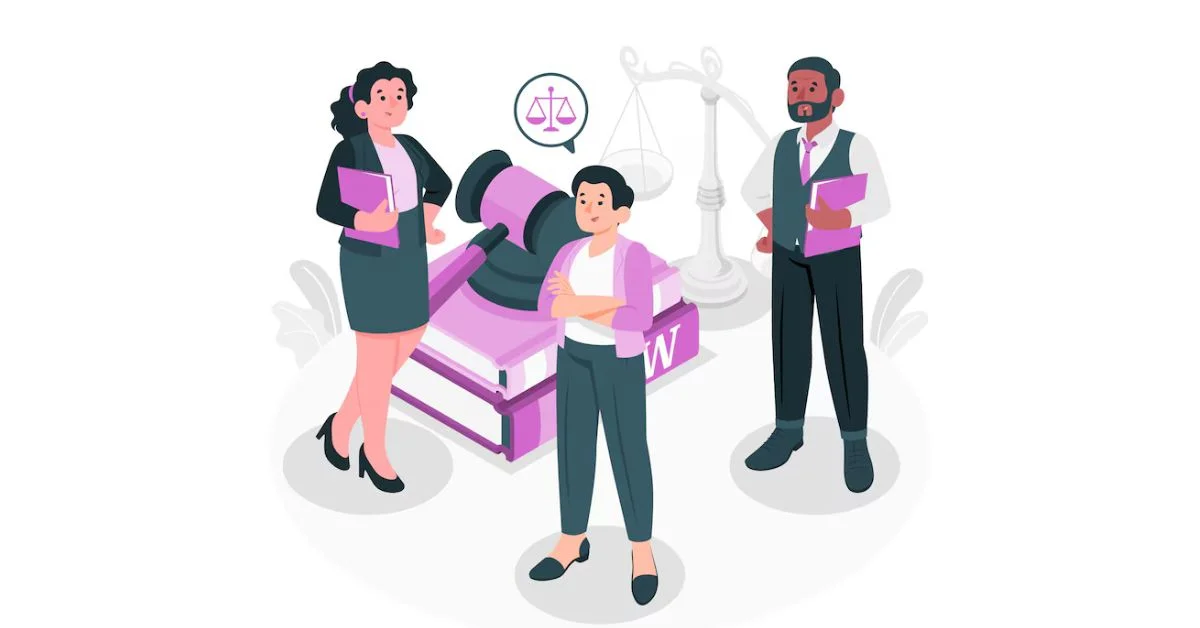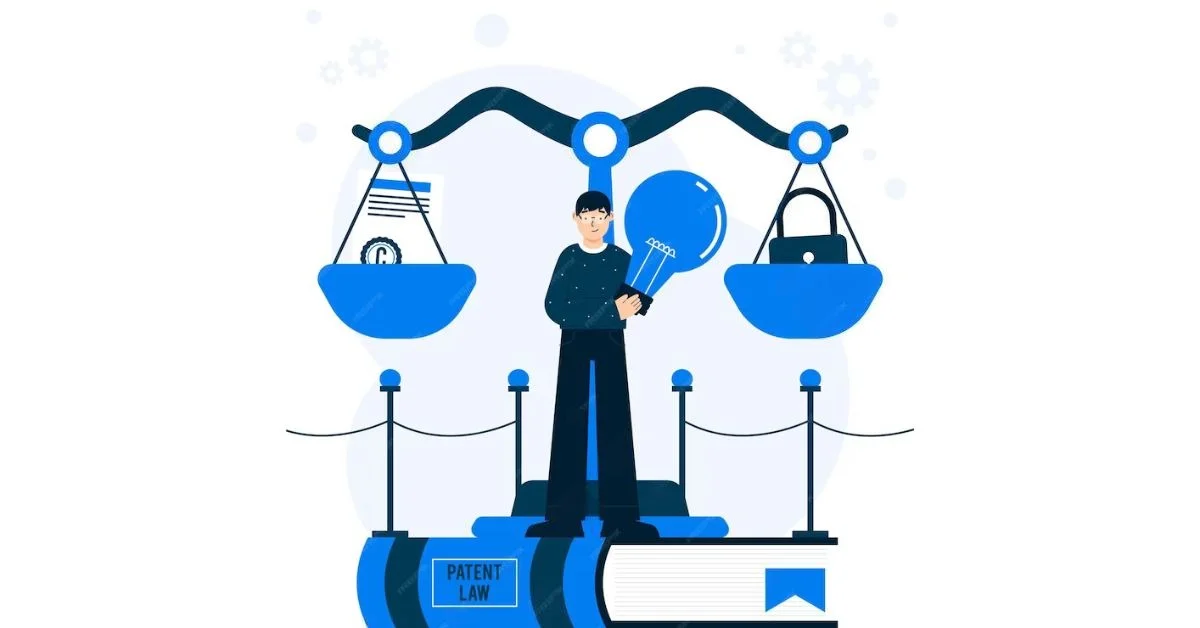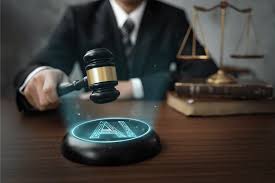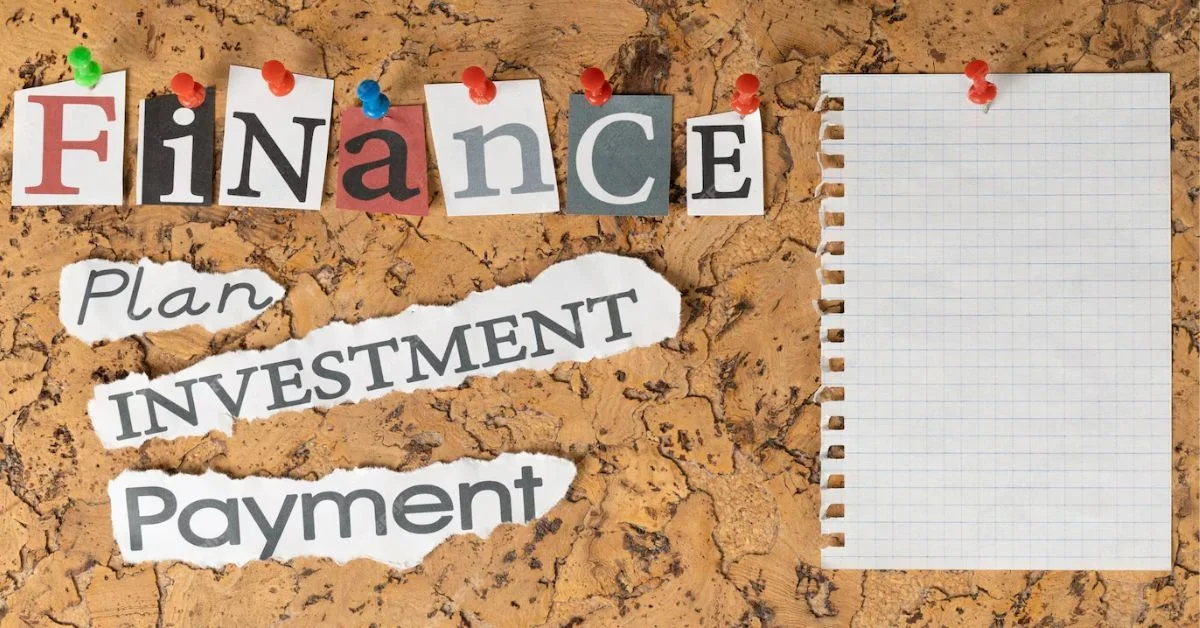LAW
Comprehending the Difficulties of Legal Rights and Personal Injury Claims

Navigating the labyrinth of legal procedures following a personal injury can be an overwhelming experience for many. It’s a journey fraught with complex legal terms, deadlines, and negotiations, each capable of dramatically influencing the final settlement. The first step in successfully defending one’s legal rights may be to consult with an experienced personal injury attorney. This article delves into the intricacies of personal injury claims to unravel these complexities and offer clarity to those in the throes of such stressful circumstances.
Key Takeaways
- Grasping your legal rights is essential in making informed decisions throughout personal injury claims.
- Deadlines, comprehensive evidence, and adept legal representation are crucial to the success of these cases.
- Choosing between settlements and trials can alter the course and consequences of your legal journey.
Table of Contents
- What Are Personal Injury Claims?
- The Legal Process in Personal Injury Cases
- Evidence’s Function in Cases of Personal Injury
- Statute of Limitations: Timing is Crucial
- Determining Liability and Negligence
- The Impact of Personal Injuries on Quality of Life
- Understanding Settlements vs. Going to Trial
- Personal Injury Lawyers: Their Function and Significance
- FAQs in Personal Injury Law
What Are Personal Injury Claims?
Legal disputes, known as personal injury claims, occur when someone is injured in an accident or incident, and there is a possibility that someone else may be held legally liable for the injury. The spectrum of claims is broad, encompassing everything from simple slip-and-fall incidents to complex medical malpractice or product liability cases. Each type of claim carries its legal considerations – for instance; traffic accidents involve negligence and fault, whereas product liability might focus on defects and warnings. Understanding the specific nuances associated with each category enables a more directed and practical legal approach, which is essential for those seeking just compensation for their injuries.
The Legal Process in Personal Injury Cases
The personal injury case begins with preparing and filing a complaint, a document setting out the legal arguments and damages sought. After filing, the discovery phase involves exchanging relevant information, including depositions, document requests, and interrogatories. These are followed by pre-trial negotiations, where parties may agree to a settlement to avoid the costs and uncertainty of a trial. If negotiations break down, the matter goes to trial, where a jury or judge decides who is at fault and may even grant damages. Each step of this process is governed by complex rules and procedures that can vary by jurisdiction.
The Role of Evidence in Personal Injury Cases
Evidence in personal injury claims can come in many forms, from the tangible, such as medical bills and photographs of injuries, to testimonies of eyewitnesses or experts. Well-documented evidence is crucial in proving the extent of injuries, the impact on the claimant’s life, and the defendant’s liability. Detailed medical records demonstrate the causal link between the accident and the injuries claimed. At the same time, expert testimonies shed light on the long-term effects of these injuries or calculate the economic loss suffered. Collecting and presenting this evidence convincingly and compellingly often makes or breaks a case.
Statute of Limitations: Timing is Crucial
According to a statute of limitations, legal procedures can only be started within a specific time following an event. Regarding personal injury cases, this window can range from one to several years, depending on the state. Missing this critical deadline means losing the right to seek compensation through the courts, irrespective of the injuries’ severity or the negligence’s clarity. Therefore, understanding and adhering to these deadlines is paramount for maintaining the right to legal redress.
Determining Liability and Negligence
The basis for determining who is legally accountable, or “liable,” for an injury is negligence or the failure of one party to act reasonably, which harms another. Establishing negligence in personal injury law entails proving that the defendant had a duty of care, that duty was broken, and that the breach directly resulted in damages. Ascertaining liability can become complex, especially in cases involving multiple parties or where the victim may share a portion of the blame. A nuanced understanding of negligence and contributory fault principles is invaluable in these scenarios.
The Impact of Personal Injuries on Quality of Life
Beyond the immediate pain and suffering, personal injuries impose far-reaching consequences on an individual’s life. These injuries can interrupt careers, strain relationships, and lead to long-term or permanent disabilities that reshape the victim’s daily existence. It’s not just medical bills that weigh heavily; the emotional toll and loss of the ability to engage in once-enjoyable activities should also be factored into compensatory awards. Legal representatives and courts often struggle to quantify these non-economic damages, which are fundamental to a complete and fair compensation package.
Understanding Settlements vs. Going to Trial
The dilemma between accepting a settlement or proceeding to trial is a critical juncture in any personal injury case. Settlements generally offer a guaranteed outcome and a quicker resolution, allowing the injured party to avoid the unpredictability of a jury decision and the public nature of court proceedings. However, settlements might only sometimes reflect the total value of the claimant’s damages. Alternatively, a trial can result in higher compensation if successful but carries the risks of an unfavorable verdict, increased legal fees, and the emotional strain of a public legal battle. It is a strategic choice that should be informed by a comprehensive evaluation of the case’s strengths and weaknesses, often guided by experienced legal counsel.
Personal Injury Lawyers: Their Function and Significance
Personal injury lawyers are invaluable throughout the lifecycle of a claim. They serve as navigators through the legal system, advocates in negotiations and courtrooms, and advisors in making critical case-related decisions. These attorneys bring a depth of knowledge not only in the law but also in dealing with insurance companies and understanding the medical implications of injuries. Their expertise can level the playing field for injured parties, dismantle the defensive strategies of opposing parties, and enhance prospects for recovery through superior negotiation or trial advocacy skills.
FAQs in Personal Injury Law
Victims of personal injury often grapple with a plethora of questions. How is compensation calculated? What is a fair settlement? How long do I have to file a claim? Answers to these questions are always complex and depend on each case’s unique attributes. While the internet offers a broad range of information, tailored advice from legal professionals is always the most reliable source for answers.
Staying Informed on Legal Developments and Rights
Educating oneself about ongoing changes in personal injury law is critical to effectively managing a claim. Reading up on recent legal insights can provide valuable context. Furthermore, having a clear understanding of one’s legal rights after an accident is crucial for anyone confronting the aftermath of a personal injury. Assurance lies in knowledge and the support of capable legal representation, setting the stage for rightful compensation and a smoother recovery process.
The perspectives and information garnered in this article elucidate the complex web of considerations that envelop personal injury claims. This domain is where knowledgeable guidance, timely action, and a thorough understanding of one’s rights intersect to create the backdrop for justice and fair recovery.
LAW
Streamlining Justice: Enhancing Due Process

In the realm of justice, the concept of due process stands as a cornerstone of fairness and equity. Ensuring that every individual has the right to a fair trial and legal protection is fundamental to a just society. However, as the complexities of legal cases grow and the volume of disputes increases, the need for streamlined processes within the legal system becomes ever more apparent.
The Importance of Due Process
Before delving into the ways in which due process can be enhanced through streamlining, it’s crucial to understand the significance of due process itself.
Due process is the principle that ensures individuals are treated fairly by the legal system. It guarantees that everyone has the right to notice and a hearing before the government can take away their life, liberty, or property. This procedural safeguard is enshrined in the constitutions of many countries and is considered a fundamental human right.
Challenges in the Current Legal Landscape
Despite the noble principles underlying due process, the current legal landscape is fraught with challenges that can impede its effective implementation. Some of the key challenges include:
- Backlogs and Delays: Overburdened court dockets often lead to significant delays in the resolution of cases, denying individuals timely access to justice.
- Complex Procedures: Legal processes are often convoluted and difficult to navigate, especially for those without legal expertise, creating barriers to effective representation.
- Resource Constraints: Limited resources, both in terms of funding and manpower, can strain the efficiency of legal systems, hampering the timely delivery of justice.
Enhancing Due Process Through Streamlining
To address these challenges and enhance due process, various strategies can be employed to streamline legal procedures:
- Digitalization and Automation: Embracing technology to digitize court processes, automate routine tasks, and enable online filings can significantly reduce paperwork, increase efficiency, and expedite case resolutions.
- Alternative Dispute Resolution: Implementing mechanisms such as mediation and arbitration can help resolve disputes outside of traditional court settings, easing the burden on overloaded court systems and providing quicker resolutions for parties involved.
- Simplified Legal Language: Making legal documents and procedures more accessible through plain language can empower individuals to understand their rights and obligations better, promoting transparency and reducing confusion.
- Case Management Systems: Utilizing case management software can streamline document management, scheduling, and communication among legal professionals, enabling seamless collaboration and efficient case handling.
The Role of a Criminal Justice Lawyer in Streamlining Justice
A criminal justice lawyer in Utah plays a pivotal role in streamlining the justice process, directly impacting the efficacy of enhancing due process. These legal professionals are at the forefront of navigating the state’s complex legal system, advocating for the rights of individuals and ensuring that the principles of fairness and equity are upheld. Their expertise in the intricacies of criminal law and profound understanding of procedural nuances enable them to effectively minimize delays and overcome the challenges posed by backlogs and complex procedures.
By leveraging their knowledge and skills, a criminal justice lawyer in Utah can significantly contribute to the implementation of strategies aimed at streamlining legal processes, from advocating for the digitalization and automation of court systems to supporting the use of alternative dispute resolution mechanisms. Their commitment to justice and proficiency in the legal landscape are essential in the quest to enhance due process, making their role indispensable in the pursuit of an efficient and equitable justice system.
As we navigate an increasingly complex and interconnected world, the need to streamline legal processes and enhance due process becomes paramount. By leveraging technology, fostering innovation, and prioritizing efficiency, we can pave the way for a more accessible, transparent, and equitable legal system for all.
In conclusion, streamlining justice is not just about expediting procedures; it’s about upholding the principles of due process and ensuring that justice is swift, fair, and accessible to all. By embracing innovation and reimagining traditional legal approaches, we can forge a path towards a more just society where rights are protected, disputes are resolved efficiently, and due process is truly enhanced.
LAW
ListCrawler Arrest: Unraveling the Digital Web of Data Breaches and Accountability

Introduction to ListCrawler Arrest
In an era where data flows ceaselessly through the veins of the internet, incidents like the “ListCrawler Arrest” underscore the tension between information freedom and privacy protection. What happens when a shadowy figure or entity harvesting vast troves of personal data meets the law? This article dives deep into the concept of the “ListCrawler Arrest,” unpacking its significance, origins, and the ripples it sends through technology, society, and governance.
Continue your journey: This related article is worth your time.
Defining ListCrawler Arrest: More Than Just a Name
At its core, “ListCrawler Arrest” refers to the apprehension of an individual or group involved in unauthorized mass data collection using automated tools often called “list crawlers.” These crawlers systematically scour websites, forums, and databases to extract user data—sometimes for benign marketing, but frequently for malicious exploitation like identity theft, fraud, or black market sales.
The arrest signals a crucial junction where cybercrime meets enforcement. Unlike traditional cybercrimes focusing on hacking systems, list crawling involves passive but extensive harvesting of data, creating a grey zone in cyber law.
Origins and Philosophical Background: The Rise of Data as the New Oil
The concept of the ListCrawler Arrest emerges from the broader narrative of data’s ascendance as a valuable commodity. Just as the Industrial Revolution transformed raw materials into economic powerhouses, the digital age transformed information into currency.
Philosophically, it echoes debates on privacy versus transparency. Should data, often publicly accessible, be freely collected and traded? Or do individuals retain inalienable rights over how their digital footprints are used? The arrest crystallizes this tension, prompting society to reconsider boundaries and responsibilities in cyberspace.
Real-World Applications Across Sectors
The implications of ListCrawler arrests extend beyond law enforcement. In AI, scraped data feeds machine learning models, raising questions about consent and bias. Businesses use crawled data for competitive analysis and targeted marketing, walking a fine line between innovation and intrusion. Educational platforms track user behavior to tailor learning experiences, while societal debates center on surveillance, consent, and the digital commons.
This incident triggers ripple effects: companies must bolster data protection, regulators refine legislation, and users grow more vigilant. It is a catalyst accelerating the maturation of digital ethics.
How ListCrawler Arrest Differs From Traditional Models?
Unlike conventional cyberattacks, which often rely on breaching security defenses, list crawling exploits publicly exposed or weakly protected data sources. It challenges traditional security paradigms by blurring lines between legal and illegal, passive and active data collection.
The arrest thus spotlights an evolving threat landscape where regulatory and technological frameworks must adapt from static defense to dynamic governance. It’s less a violent break-in than a stealthy gathering of scattered pieces — a digital puzzle solved without the victim’s consent.
Hungry for more knowledge? Our full library is open to explore!
Future Implications: Ethics, Risks, and Opportunities
The ListCrawler Arrest underscores urgent ethical questions. Should data scraping be outlawed or regulated? How do we balance innovation with privacy rights? As AI systems demand larger datasets, will regulation throttle progress or safeguard society?
Risks include increased surveillance, data monopolies, and erosion of trust. Conversely, opportunities arise to design systems prioritizing transparency, consent, and user empowerment.
This event is a harbinger: the digital ecosystem must evolve to uphold human dignity while harnessing data’s transformative potential.
Best Practices: Designing for Ethical Data Use
Organizations and policymakers can learn from this incident by embedding ethical principles into data strategies. Prioritize transparency by informing users about data collection. Adopt privacy-by-design frameworks ensuring minimal data harvesting. Implement robust consent mechanisms and provide accessible opt-out options. Strengthen collaboration between technology developers, regulators, and civil society to craft balanced, adaptable policies.
Above all, cultivate digital literacy, empowering individuals to understand and control their data footprint.
Conclusion: Weaving Humanity Into the Digital Fabric
The ListCrawler Arrest is more than a law enforcement milestone; it is a mirror reflecting our collective struggle to humanize technology. It challenges us to rethink the invisible threads linking identity, privacy, and innovation in the digital age.
As we unravel these threads, the choices we make will shape a future where technology amplifies human values rather than diminishes them — ensuring the web we weave is one of trust, respect, and shared progress.
Don’t miss out on more great reads—click through our featured posts!
FAQs
What is a list crawler?
A list crawler is an automated tool that scans websites to collect large amounts of data, often user information.
Why was the ListCrawler arrested?
They were arrested for unauthorized mass data collection, potentially violating privacy laws.
Is all data scraping illegal?
No, scraping publicly available data can be legal, but it depends on consent, purpose, and jurisdiction.
How does this arrest affect businesses?
It raises awareness for companies to strengthen data protection and review compliance with privacy laws.
What can users do to protect their data?
Users should manage privacy settings, be cautious about sharing personal information, and use secure platforms.
LAW
How AI Is Helping Family Lawyers Work Faster and Smarter

The legal profession is changing quickly, and family lawyers are experiencing this transformation firsthand. With the rise of artificial intelligence (AI), legal professionals working in emotionally sensitive and time-intensive cases are beginning to see real benefits. Family law AI tools are helping lawyers save time, reduce errors, and focus more on their clients.
This article explores how legal AI is improving the way family lawyers work. It looks at specific tasks that AI can handle, the advantages it brings, and why it’s becoming a key part of modern legal practice.
What Is Family Law AI?
Family law AI refers to the use of artificial intelligence in handling legal matters related to families. This includes divorce, child custody, property division, spousal support, and more. Legal AI tools are designed to assist lawyers with tasks that require reading, analyzing, or drafting documents, as well as organizing case-related data.
These tools do not replace lawyers but act as intelligent assistants that help them work faster, stay more accurate, and deliver better service to clients.
Common Challenges in Family Law
Before looking at how AI helps, it’s important to understand some of the challenges family lawyers face every day:
- Managing a large number of documents such as contracts, affidavits, and court filings
- Handling urgent and time-sensitive issues like emergency custody hearings
- Staying focused and compassionate in emotionally charged situations
- Keeping up with changes in family law regulations and case law
These challenges take up a lot of time and effort. AI tools can help by handling the repetitive parts of the job so lawyers can focus on decision-making and client care.
Automating Document Review and Drafting
One of the most time-consuming tasks in family law is preparing and reviewing documents. Legal AI tools can now read, summarize, and even draft contracts, custody agreements, and court documents.
These tools can identify missing clauses, suggest legal language, and catch inconsistencies. As a result, lawyers spend less time proofreading and more time thinking about legal strategy. The accuracy improves, and the chances of costly mistakes are reduced.
Faster and Smarter Legal Research
Legal research is another area where family law AI is making a big impact. Traditional research often takes hours or even days. Lawyers have to search through databases, case files, and legal textbooks to find the right information.
AI-powered research tools speed up this process by analyzing vast amounts of legal content in seconds. Lawyers can simply ask a question in plain language, and the tool will return relevant cases, laws, and summaries. This allows them to prepare more thoroughly and quickly for court or negotiations.
Predictive Insights for Better Decisions
Some advanced legal AI platforms now offer predictive analytics. These systems study past cases and outcomes to provide insights that can guide current decisions. For example, an AI tool might show that in a particular state, courts tend to favor joint custody when both parents are employed full-time.
While AI cannot predict the future, it can help lawyers and clients make more informed choices. This is especially useful in family law, where every decision can have a lasting impact.
Better Client Communication
Family lawyers often receive a high volume of questions and updates from clients. Many of these are routine, such as asking for status updates or requesting documents.
Legal AI tools can help here by handling repetitive client interactions. Some firms use AI-powered chatbots to answer basic questions or collect information from clients. This saves time for the lawyer and provides quicker responses for the client. It also helps maintain better communication throughout the case.
Improved Compliance and Data Security
Family law cases often involve sensitive personal information. This includes financial records, medical history, and custody details. Legal AI platforms are built with security and compliance in mind. They can help ensure that data is stored securely and that only authorized people can access it.
Many AI systems also provide audit logs. These logs show who accessed each file and when, helping law firms maintain trust and transparency with their clients.
AI in Mediation and Settlements
Mediation is a big part of family law. AI tools can support the process by analyzing both sides’ information and suggesting fair outcomes. For example, an AI platform might help divide property based on current market values or recommend a parenting plan that aligns with the best interests of the child.
These insights can reduce disagreements, speed up the mediation process, and lead to more peaceful resolutions. It allows lawyers to guide clients with clear, data-backed options.
Smarter Time Tracking and Billing
Billing is another task where legal AI offers support. AI-powered time tracking systems can automatically record hours spent on different tasks and generate accurate invoices. This helps prevent missed billables and makes it easier for firms to manage their finances.
For smaller law firms or solo practitioners, this can make a big difference in saving time and improving cash flow.
Will AI Replace Family Lawyers?
The idea that AI might replace lawyers often causes concern, but in reality, AI is a tool that supports lawyers rather than replaces them. In family law especially, human understanding, empathy, and judgment are essential.
Legal AI tools are best used to handle the routine and repetitive parts of legal work. This allows family lawyers to focus more on helping their clients through difficult and emotional times.
Final Thoughts
AI is helping family lawyers work faster, smarter, and with greater confidence. From research and document review to client communication and mediation support, family law AI is becoming an essential part of modern legal practice.
By taking over the time-consuming tasks, legal AI tools allow family lawyers to focus on what matters most i.e. delivering quality service, guiding families through tough decisions, and staying ahead in a fast-changing legal environment.
Lawyers who adopt AI are not just keeping up with technology. They are creating more efficient, client-friendly practices that are ready for the future.

 ENTERTAINMENT4 days ago
ENTERTAINMENT4 days agoExploring the Kristen Archives: A Treasure Trove of Erotica and More

 TECHNOLOGY4 months ago
TECHNOLOGY4 months agoBlog Arcy Art: Where Architecture Meets Art

 ENTERTAINMENT1 day ago
ENTERTAINMENT1 day agoKiss KH: The Streaming Platform Redefining Digital Engagement and Cultural Currents

 EDUCATION1 day ago
EDUCATION1 day agoLingrohub Platform: A Complete Student Access Guide

 LIFESTYLE4 months ago
LIFESTYLE4 months agoThe Disciplinary Wives Club: Spanking for Love, Not Punishment

 TECHNOLOGY1 day ago
TECHNOLOGY1 day agoCasibom: The Digital Alchemy Reshaping Systems, Society, and Self

 HEALTH1 day ago
HEALTH1 day agoThe Surprising Benefits of Weight Loss Peptides You Need to Know

 BUSINESS1 day ago
BUSINESS1 day agoDiversifying Your Portfolio: The Key to Successful Investing in Portland, Oregon










